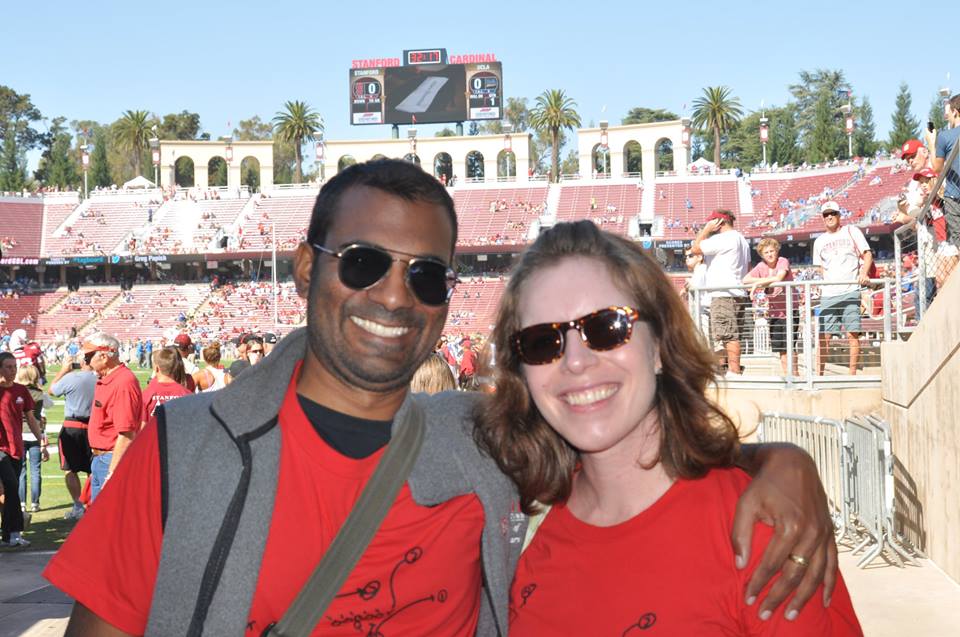
|
By Brad Marshland
Courtesy of Yahoo
Dr. Paul Kalanithi read the CT scan. He could clearly see tumors matting the lungs and deforming the spine. As a resident in neurosurgery in his final year of training at Stanford, he’d seen plenty of such scans before. But this time, the scan was his own.
He was 36 years old, just at the beginning of an exceptionally promising career, when he was diagnosed with stage IV lung cancer. And yet, in a way, Paul had been preparing for this confrontation with mortality his whole life. As he wrote in his memoir When Breath Becomes Air, even as a college student, he was “driven less by achievement than by trying to understand, in earnest: What makes human life meaningful?” After earning a master’s degree in English from Stanford and a master’s in philosophy from the University of Cambridge, he entered Yale Medical School. He ultimately chose to specialize in neurosurgery because it “seemed to present the most challenging and the most direct confrontation with meaning, identity, and death.”
Then, in May 2013, Paul received the diagnosis that made that confrontation even more direct. The doctor became the patient, an unsettling experience that he bore with a mix of optimism and reflection. He wrote: “Shouldn’t terminal illness, then, be the perfect gift to that young man who had wanted to understand death?”
In an exclusive interview with Yahoo Global News Anchor Katie Couric, Paul’s wife, Lucy Kalanithi (also a Stanford physician), said that, as doctors, “We had seen that bad things can happen. … In a way, we skipped the stage of asking ‘Why me?’ and we sort of had more of this feeling of ‘Oh my gosh, it’s our turn now.’”
Paul never smoked, so when Paul first began showing symptoms — weight loss, fatigue, severe back pain — it was easy to write them off as symptoms of being chief resident in neurosurgery, working 90-hour weeks, operating on patients’ brains for 14 hours a day. (According to the American Cancer Society, about 20% of people who have lung cancer never smoked.)
Once diagnosed, time became even more of an issue for Paul. In his first visit with his oncologist, he wanted to see the Kaplan-Meier curves — the charts that show lifespan probabilities — for his particular variety of cancer. But his doctor put him off. Even for a trained physician like Paul, it’s difficult to grapple with statistics, and impossible to know where any individual falls on the curve. Whether it’s weeks or months or years, the important thing, his oncologist insisted, is first to figure out one’s values. Still, Paul wrote in When Breath Becomes Air that if he could have some sense of how much time he had left, it would be easier to set his priorities. “If I have two years, I’d write. If I have 10 years, I’d go back to surgery and science.” Living his values, he went back to practicing neurosurgery for a time — and he wrote a book. As it turned out, he had 22 months.
He and Lucy also decided to expand their family by having a child. “If human relationship formed the bedrock of meaning,” he wrote, “it seemed that rearing children added another dimension to that meaning.” At first, Lucy was not so certain: “I was worried — I asked him, ‘Don’t you think that having a child to say goodbye to will make your death more painful?’ And his answer really astounded me. He said, ‘Well, wouldn’t it be great if it did?’ And what he meant by that was if a child brings us such a degree of meaning that it becomes even more painful to leave, that’s amazing. … Life isn’t about avoiding suffering, it’s also about creating meaning.”
When Breath Becomes Air is in many ways a love letter from Paul to his infant daughter Cady: “When you come to one of the many moments in life where you must give an account of yourself, provide a ledger of what you have been, and done, and meant to the world, do not, I pray, discount that you filled a dying man’s days with a sated joy. …”
And as Lucy says: “I knew that Cady and Paul wouldn’t overlap forever. I had been together with Paul. We were all together for a period of time, and now it’s me and Cady moving forward… You know, we’re sort of all guaranteed suffering. And it’s up to us to strive to make meaning — to strive to be good, to do the right thing, to be better — and to live according to our values.”
At one point in When Breath Becomes Air, Paul writes that if he had been more religious in his youth, he might have become a pastor instead of a doctor or a writer. With this book, Paul Kalanithi reveals himself as all three.
|